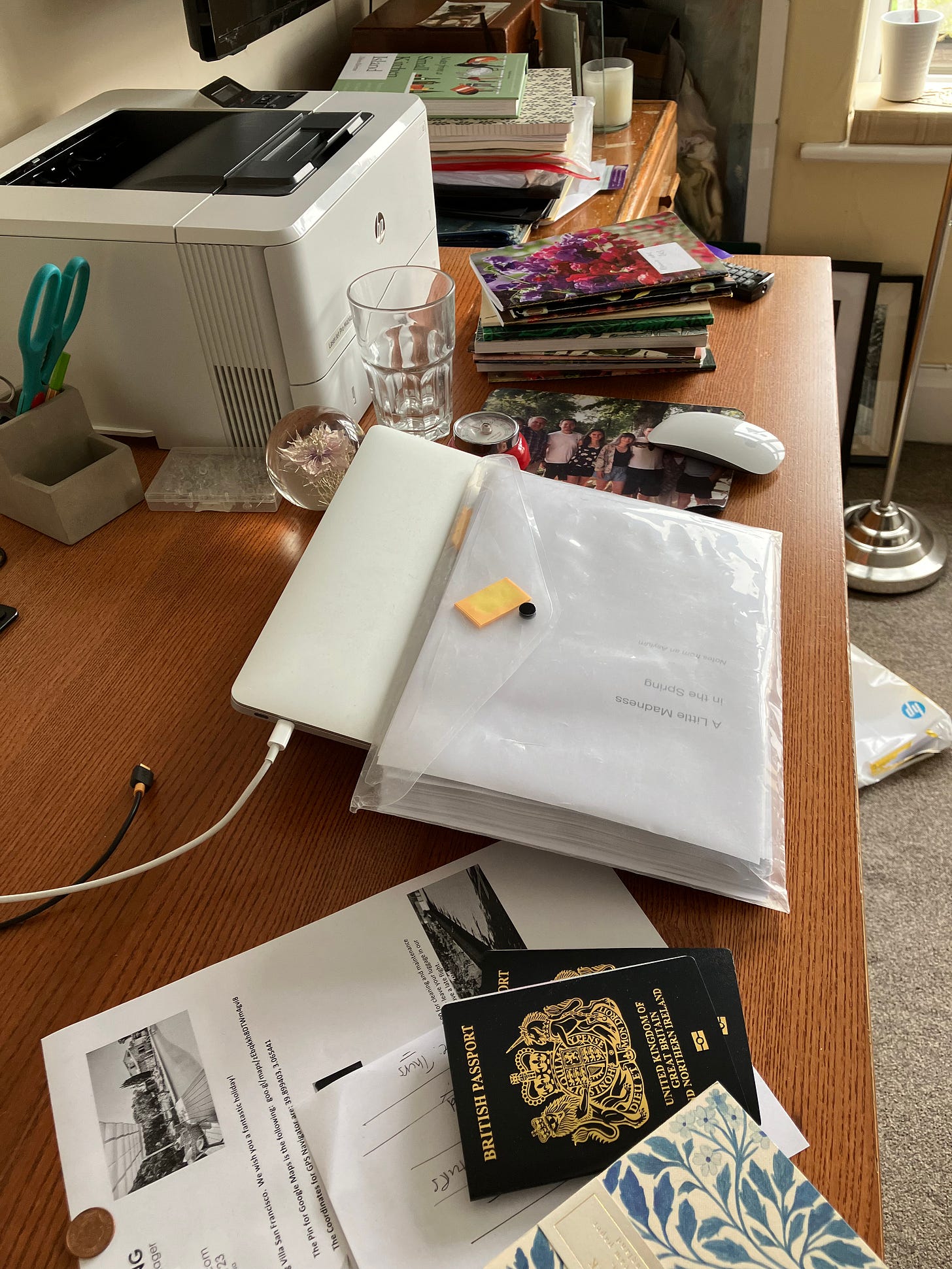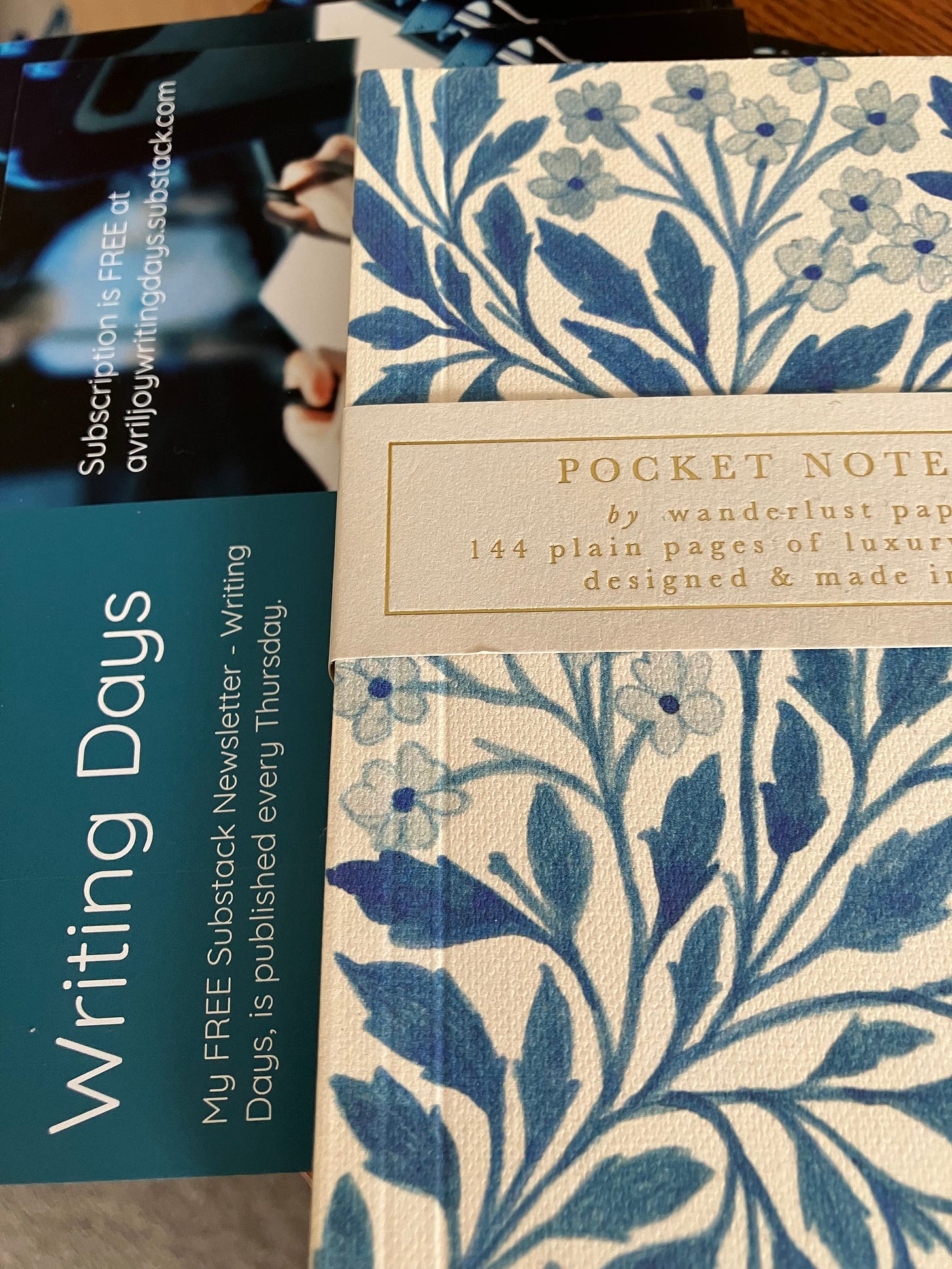If I waited for perfection, I would never write a word ~ Margaret Atwood
On my desk this week lies an edited copy of A Little Madness in the Spring. It’s waiting to be delivered to a friend who is also a very generous and acute copy reader. Although it has been edited to the nth degree I’m sure she will still find typos, missing words, etc. and I will be eternally grateful.
I am now at the stage where I dare not look again at the text myself because I know I will not be able to resist fiddling with it - it’s a never ending process - and it has to be called to a halt. Nevertheless the desire and drive to arrive at a perfect copy is of course essential at this stage. You do not want your work to go out into the world full of errors.
But so often, perfectionism is the death knell of creativity. It’s something I have written about before but I make no apologies for returning to it…the need to be perfect; the fear of not being perfect, of not being good enough has been, and sometimes still is, a real problem for me as a writer.
It’s a problem many writers and creative people suffer from, a problem that can prevent us writing altogether. Perfectionism is like a disease in which we constantly judge ourselves and find ourselves wanting. As perfectionists we believe we are not good enough, our work is not good enough, we may even judge ourselves before we’ve started and those of us who seek perfection can be extremely sensitive to the judgments of others.
Sometimes we chose not to do something because we can’t do it as well as others or the ‘greats.’ I often get this feeling when I’m in a book shop looking at the vast array of books on display. I find myself thinking why bother? I’ll never be as good as these writers. It also happens when I’m presented with a plethora of books, and their successes, on social media. Comparisons are indeed odious.
When we share our work, whether we’re artists, writers, photographers, musicians… we make ourselves vulnerable, open to criticism, open to being knocked down. And getting knocked down can be hard. We want people to like what we do. We want approval. We find it easy to imagine the disparaging things people might say. This was me when I started out and still is me sometimes. So how to overcome it; how to feel the fear and write anyway? This is what works best for me:
In the first instance I wanted to write and I did, but I planned not to share my work. I think this was crucial. I didn’t think about publication, competitions etc. To begin with I wrote for myself.
When, after several months, I was offered the opportunity to share my writing I took the chance but only because the group was very small and trusted, even then I had serious palpitations the first time I read.
I had a mentor and friend – we all need help like this or a writing buddy of some kind, someone who is on our side.
I told myself that whatever writing I did that day was not it, it could be altered, polished, edited etc. later, it was just the beginning, and I gave myself permission to scribble in my notebook. I did not write on the computer - the problem with this is it can look too perfect from the outset.
I tried to write without stopping and still do, so that the voice in my head telling me it’s no good just can’t get a look in.
The world of publishing pits writers against each other. As does social media. I decided it was important to say good and positive things about others and their success. Writing is a difficult lonely endeavour, and every writer is a perpetual beginner. Therefore, don’t be ungenerous with another person’s attempts. Such an act will only reflect on you ~ Isabella Franconati.
I asked myself what I’d got to lose and began to see that if there was a failure it would be in not writing at all - being held back by my own insecurities, being denied the joy of simply writing regardless of the outcome.
In the beginning I read Natalie Goldberg Writing Down The Bones, a LOT, and I agreed when she talked about how hard it is for us to value our own lives and what we do and how we must learn to claim our work. I read Julia Cameron’s The Artist’s Way ~ By being willing to be a bad artist you have a chance to be an artist and perhaps over time a very good one.
I looked to people I knew, who set an example. Who continued to do what they believed in regardless of conventional success. If they could do it why couldn’t I?
I kept telling myself to feel the fear and…. well you know how the saying goes.
Without some self-belief it’s impossible to keep writing and that's why we need people like Natalie Goldberg to help foster our faith in ourselves and our love of writing. We need to nurture our fragile egos and learn to say what the hell to everything that gets in the way.
Finally, I truly believe we need to measure our success in less conventional ways - much more of this another time
Our deepest fear is not that we are inadequate. Our deepest fear is that we are powerful beyond measure. It is our light, not our darkness that most frightens us. We ask ourselves, Who am I to be brilliant, gorgeous, talented, fabulous? Actually, who are you not to be? ~ Marianne Williamson
Last week I wrote about A Room of One’s Own.
In Notes from the Margin, one of my favourite substack writers, Wendy Pratt - wrote similarly about a room set aside solely for me to push myself and my writing forward. A room of one’s own. I decided to take a chance on myself and converted the second biggest bedroom in my house to a writing room… - I recommend you take a look and subscribe
As well as the manuscript you may have spotted passports on my desk! Next week I’m off to Pollensa in Mallorca for a family holiday and hopefully some sun but I’ll be posting before I go about my holiday notebook and a simple writing practice you might like to try.
Thanks for reading - Avril x




Hi Avril,
I know well the fears you mention. I just decided in writing, we each have our truths to tell, here is a contribution through my lens. And also a book, the object itself, is a definite thing. Being creative isn't. The book is like a showroom vehicle, when most of our time is spent in motion. Creativity isn't definite, but the world thinks the fruits of its labour are. All creativity tries to capture an aspect or moment of consciousness, our attempts interest each other, for me that's enough.